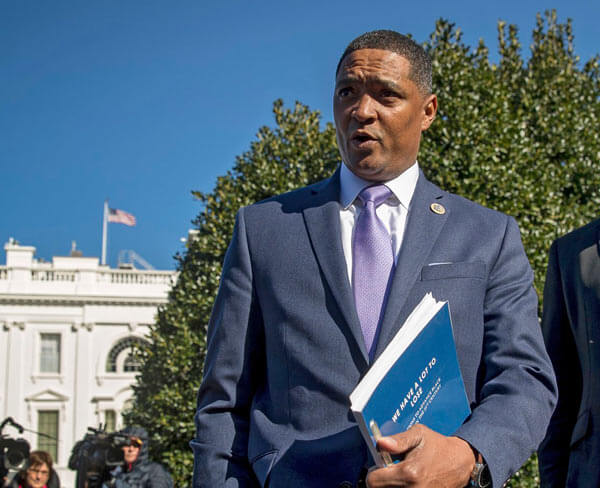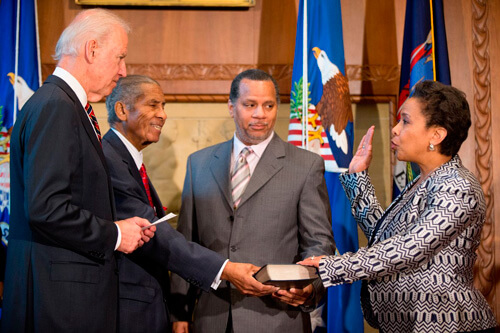The chair of the Congressional Black Caucus (CBC), Cedric Richmond, and Caribbean American Congresswoman Yvette D. Clarke have urged the Trump administration to extend Temporary Protected Status (TPS) for Haitian nationals who were in the United States prior to Nove. 4, 2016.
Haiti was added to the list of TPS-designated countries on Jan. 21, 2010, after an earthquake killed 300,000 people and displaced another 1.5 million people. TPS has been extended three times since then for 18 months each, CBC noted.
“Allowing Haitian nationals in this country to remain here longer puts them and their families in a better position to help Haiti rebuild and recover from devastating natural disasters,” said Congressman Richmond in his letter to John Kelly, Secretary of the US Department of Homeland Security, on Wednesday. “The 2010 earthquake and the cholera outbreak and hurricane that followed hurt a country that was already hurting and now is not the time to add salt to the wound.”
Clarke, the daughter of Jamaican immigrants, who represents the 9th Congressional District in Brooklyn, New York, said the 2010 earthquake “disrupted the function of civil society in Haiti, displacing families from their homes, closing schools and social service agencies, creating instability in government and undermining the economy.
“The people of Haiti have demonstrated extraordinary resolve in their efforts to rebuild, despite serious hardships, such as Hurricane Matthew in 2016 and outbreaks of cholera,” she said in her letter to Kelly. “Their efforts have been supported by Haitian nationals here in the United States, who are working hard, and [are] sending money to family members and friends.
“These remittances are critical to the recovery, and have provided not only for basic needs but have also supported education, agricultural restoration, business development and home reconstruction,” she added.
Clarke, therefore, urged Kelly to “follow in the proud tradition established by his predecessors of continuing to allow Haitian nationals to contribute to their nation’s future.”
CBC said Clarke’s request was joined by the entire group. CBC. She has also introduced H.R. 1014, the Haiti Emergency Relief Act of 2017, which would provide TPS for Haitian nationals who have been in the United States since before Nov. 4, 2016.
The congressional representatives’ plea comes on the heels of a recommendation by acting director of US Citizenship and Immigration Services, James McCament, that TPS be extended for only six months past the current July 22 expiration date, according to the Miami Herald.
Under that recommendation, TPS for Haitians would end Jan. 22, the paper said.
It said McCament issued the recommendation to Kelly in an April 10 memo. Kelly has until May 23 to decide.
The recommendation to end TPS has fueled at least two petitions from Haitian activists, letters from Republican and Democratic lawmakers and 416 faith-based leaders and organizations, and editorials in publications including the Miami Herald, Washington Post and New York Times.
“Failing to reissue TPS at this critical juncture would be a grave mistake that would mean sending tens of thousands of Haitians back to a country that is struggling with disease, nutritional insecurity, and possible natural disaster,” CBC told Kelly in a letter. “Instead of undertaking this drastic and irreversible action, we call upon you to show compassion for this struggling community and allow them to remain here for an additional 18 months as Haiti continues to rebuild.”
In his recommendation, McCament noted that while Hurricane Matthew in October “contributed to suffering in Haiti,” the suffering was only confined to three of the country’s 10 geographical regions, and “the damage did not halt Haiti’s overall recovery trajectory,” according to the Herald.
“Haiti is the poorest country in the western hemisphere, and it had enormous problems long before the 2010 earthquake,” said McCament in the memorandum. “Even before the earthquake, the Haitian government could not or would not deliver core functions to the majority of its people.”
But Clarke disagrees, describing McCament’s memorandum as “a reckless, shortsighted, and simply unacceptable decision on his part.”



























